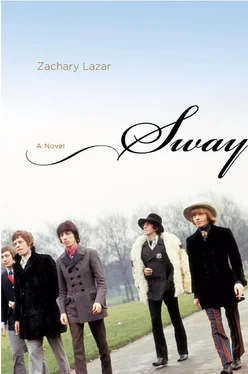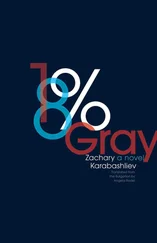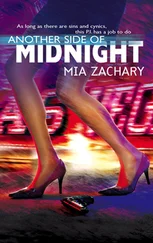For the next four hours, as far as Anger could tell, there was not a single joke or a word of casual conversation. They kept Brian off to the side — silent, obedient, lost. They all knew not to look at him, though every time they turned around they must have seen him.
It was almost five AM when the driver dropped Anger back at his flat. It was a small, badly heated set of rooms in Notting Hill Gate, a slum neighborhood where he and a few hippies were the only whites. He’d been careful not to let the band see it very often or for very long. A boy he’d met recently, Will Tennet, had helped him decorate it with stills from Inauguration of the Pleasure Dome and some other odd touches — a jeweled box, a green glass toad — that gave it the usual occult ambience, but the fact that he was gay, that he lived with boys, was something the band never seemed fully to acknowledge. They were drawn by something else, an aura they maybe half believed in, maybe wanted to believe in: the occult filmmaker in his vaguely dangerous world.
Will had left a note: “Gone to Kilburn. Don’t expect me.” Anger put his things down and looked at the half-lit room: the couch, the afghan, the coffee table with its battered, tasseled lamp. There was a strange, penitential feeling, the particular emptiness of being alone after four in the morning. An unexpected sight was waiting for him on the table, a package wrapped in brown paper. Inside he found a bird’s nest of shredded newsprint and another note: “Dear Kenneth, I saw this book of pictures and I thought of you. Anita.”
It was a book of black-and-white pictures of musclemen in dark briefs, lifting chairs or squatting before a mirror with rigid thighs. Some of them even featured men in sailor caps, as in his film Fireworks . He had no idea where Anita would have found such a book or how she would have known it had such significance for him. It made him feel fraudulent for some reason. He didn’t know if she was trying to mock him, or if she had left it there with some friendly anticipation of his nostalgia.
In the tiny bathroom, the water was so cold that his fingers started to go numb beneath the tap. He dabbed some of it on his face, his hands shaking. He looked in the mirror and saw that one of his eyes was opened slightly more than the other. His lips stretched across his mouth like two strips of bloodless rubber. He forced himself to stare at it until it wasn’t a face at all but just an image, something gray made out of stone.
He switched on the TV, knowing that there would be nothing on at this hour but the static of dormant channels. There was only the one light on in the doorway, and it was hypnotic with the TV on, the sound turned off, a field of swarming particles that never coalesced into any shape. The worry had become a repetitive fugue now, a scrim between himself and the things in front of him. It had become a narrowing tunnel of fear. He had had a nervous breakdown last year, after Bobby had disappeared. For almost a month, he had lain in bed, sleeping or just lying there when he couldn’t sleep, cocooned like a child in the warmth of his sheets. The walls of the Haight room were purplish and muddled. Everything became the same: the empty apartment, the stolen Lucifer film, the mindless antagonism of his checkbook. He’d had no money, no film, no reason to believe there would ever be a film, not even a job history or a set of skills he might use to start some other, more predictable way of life. He would see Bobby in his leather overcoat, standing in front of the city’s powerhouse, the brightly colored cogs behind him, the orange lenses of his sunglasses. He knew that Bobby was never coming back, but the wish, or the fear, had rooted itself so deeply in his mind that it became a kind of false memory, disorienting when he realized all over again that it hadn’t happened.
It was still with him now, the pendulum of embarrassed recollection and the fear that he was out of control. He thought of being in the studio with the band and it was hard to believe that it had really happened. The walls of the room before him were still in place, but everything was made transient by the blue light from the TV.
He thought of Bruce Byron, all those afternoons of filming him in his tiny apartment, lying in bed in front of what he’d called the “idiot box.” Everyone does it differently. I want to see how you do it. He’d heard that Byron was driving a cab in New York now, every inch of its interior covered with pictures of James Dean and Marlon Brando and stills of his own face from Scorpio Rising. He was still showing up at the screenings, still dressed in biker clothes. The film had somehow become his life: a collage assembled by a total stranger who had included him in it almost by accident. But that was how life in the world could be sometimes. Sometimes you were the stranger, sometimes you were Bruce Byron. Who would have thought that it would happen to him, that at his age, forty-one, the same boy, Bobby, would still be appearing almost nightly in his dreams?
Notice how comfortable they appear in their chains, so loose around their wrists that they could free themselves at any time if they so desired.
He went to bed, but as soon as he had drawn the curtains, the phone rang. On the other end of the line was the kind of sound that comes out of a doll when you pull the string on its back, a recording of a man’s boisterous laughter.
“Hello,” he said.
It was the laugh of a villain in a superhero comic.
“Hello.”
There was no answer. There was the pop and then the sudden staticky boom of a TV. Then whoever it was hung up, the sound of the dial tone as dreamlike and accusatory as the sound of the doll’s toy laughter.
“We’re going on tour,” said Mick. “That’s what Keith is trying to say. This summer we’re going back to America.”
They’d driven out to Brian’s new house, the former residence of A. A. Milne, the children’s writer. Statues of Pooh Bear and Christopher Robin stood in an informal garden beyond the pool. Brian wore a cape that looked more like a tapestry, flowers in a tangled design. One of the things they would remember was that he was completely sober that afternoon.
“It’s nothing surprising,” he said. “I mean, I haven’t been a part of it in a long time.”
Keith blew out a cloud of smoke. “It’s not necessarily a permanent thing,” he said. “It’s just that right now, fuck, you’re in no condition. It’s three months on the road.”
Brian nodded, bowing his head. “Such a serious business,” he said. “I never would have thought it would go like this. Or what I should say, I never thought it would be so much like working at a firm.”
Mick uncrossed his legs. “You’ve been fucking about for the last five years. Been getting paid pretty well while doing it.”
“You always had it in for me. Why is that?”
“The fuck I did, Brian.”
“No, I’m not going to fight with you. I understand that it’s over. I don’t have much interest anymore in being in a rock group.”
Keith stood up, twisting a little, looking down at his boots. “All right, then,” he said. “Well, maybe that’s that.”
“You going to shake my hand?” said Brian.
“Why don’t we leave it?”
Mick leaned forward in his chair. “We’ll have the press release tomorrow. Just a simple statement, nothing big.”
Keith turned. “Come on.”
“What,” said Mick.
“Just cool it.”
Brian stood up. “I’ll be seeing you around. Is that it?”
Keith cocked his head a little to one side. “You know, you pushed me every step of the way. You’re still pushing now.”
There was a crew of workers that summer renovating Brian’s house. They were restoring beams, sanding down floors, rebuilding staircases, glazing windows. It was an unusual job, Brian an unusual client. Any small resentment would have been intensified by the fact that the men doing the work would have been unable to respect him. Sometimes he would be lucid around them, sometimes he would be out of his head. Sometimes he would treat them with a lisping courtesy, and sometimes he would walk by without saying a word, or he would criticize some detail of their work. He was a pop star with a series of Scandinavian models for girlfriends. They were tradesmen who saw a boy in his twenties with a Rolls-Royce in the driveway. They double-billed him for their supplies. Even the caretaker double-ordered groceries and liquor and kept the second batch for himself.
Читать дальше












